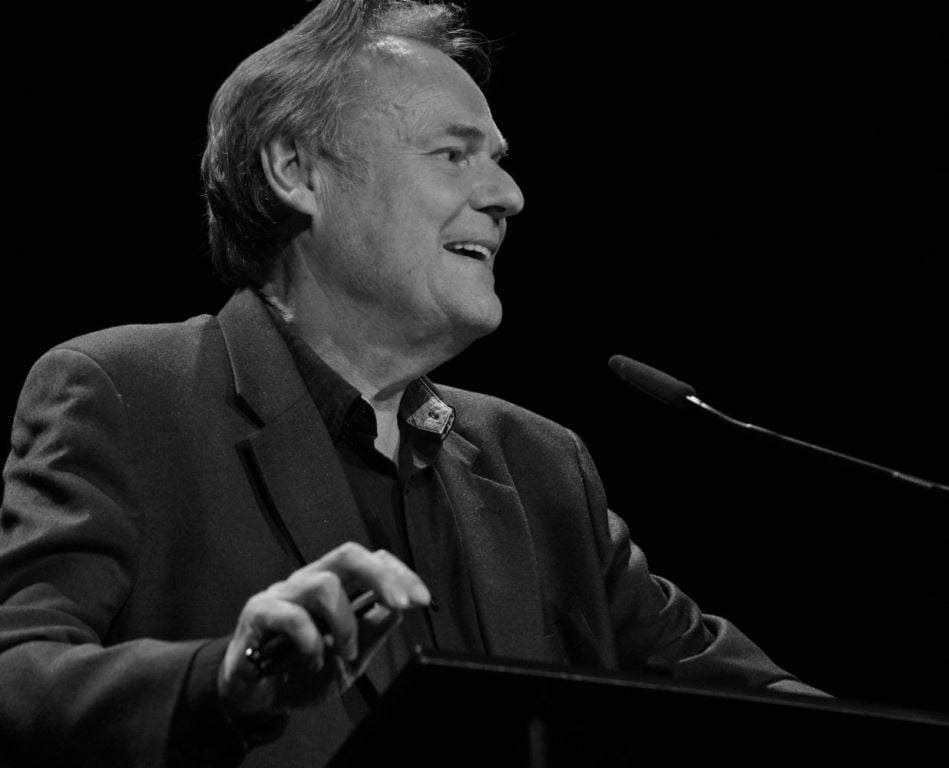
Peter Schneider
Peter Schneider was born in Lübeck in 1940 and grew up in Freiburg, where he began his studies in German language, history and philosophy. He completed his education in Berlin. He wrote speeches for SPD politicians during the Bundestag election campaign in 1965. Schneider quickly found a role as one of the key activists in the 1968 students’ movement. He has written short stories, novels, scripts, and commentaries. In addition, he has written essays and speeches that have tackled, with incisive arguments, the political and ideological questions of his time. Since 1985 he has taught as a guest lecturer at American universities, including Stanford and Princeton. He has been teaching as a Writer in Residence at Georgetown University in Washington, D.C. since 1996.
Peter Schneider’s texts are a mixture of politics and literature. In his story »Lenz«, written in 1973, he presents a very critical no-holds-barred analysis of the 1968 movement. Schneider’s »Lenz« is similar to Büchner’s »Lenz« insofar, as both works portray destruction directly resulting from the individual’s desire for freedom. The Lenz of the late sixties agitates extensively using posters and texts. He takes part in demonstrations and sit-ins only to feel the pointlessness of it all when his girlfriend leaves him. After an inspiring journey through Italy he abandons his theories in favour of a liberating form of self analysis, with particular emphasis on the physical self and his relationship to it. In »Der Mauerspringer« (1982; Eng. »The Wall Jumper«, 1983) Schneider deals with the »wall in the head« – a term which was coined by him. Last autumn, the book was published in the »Penguin Modern Classic« series with a foreword by Ian McEwan. »Paarungen« (Eng. »Couplings«, 1998) – his first novel, published in 1992 – is an in depth critical discussion between the main character Eduard, who is a molecular biologist, and his friends. The central theme of their heated discussion focuses on the faded illusions of the ’68 movement. The protagonist, having become part of that society which he formerly rebelled against, tries to test his utopian ideals of twenty years before in his new social status. Schneider’s publication, »Das Fest der Missverständnisse« (2003; tr: The party of misunderstandings) is a compilation of old and new short stories. In these, Schneider is concerned with the moment in which the mind goes blank, as in the case of Burk, who has committed himself to the history of medicine in the Third Reich. In 2008, Schneider published an autobiographical chronicle of the ’68 movement, entitled »Rebellion und Wahn« (tr: Rebellion and delusion). In the book, the worldwide awakening of ’67/’68 and an amour fou are entangled with the conflict between artistic ambition and political activism, as well as the juxtaposition of ideas how to save the world and a deep, personal desperation. In 2011 he wrote the manifesto »Mehr Europa wagen« (tr.: Dare more Europe) together with André Glucksmann, Bernard-Henri Lévy and Hans-Christoph Buch. It is an appeal to the potential of a political Europe.
Schneider lives in Berlin.
© internationales literaturfestival berlin
Der Mauerspringer
Luchterhand
Darmstadt, 1982
Paarungen
Rowohlt
Berlin, 1992
Das Fest der Missverständnisse
Rowohlt
Berlin, 2003
Skylla
Rowohlt
Berlin, 2005
Rebellion und Wahn
Kiepenheuer &Witsch
Köln, 2008
Lenz
Rotbuch
Berlin, 1973
Rebellion und Wahn
Kiepenheuer & Witsch
Köln, 2008
Die Lieben meiner Mutter
Kiepenheuer & Witsch
Köln, 2013
